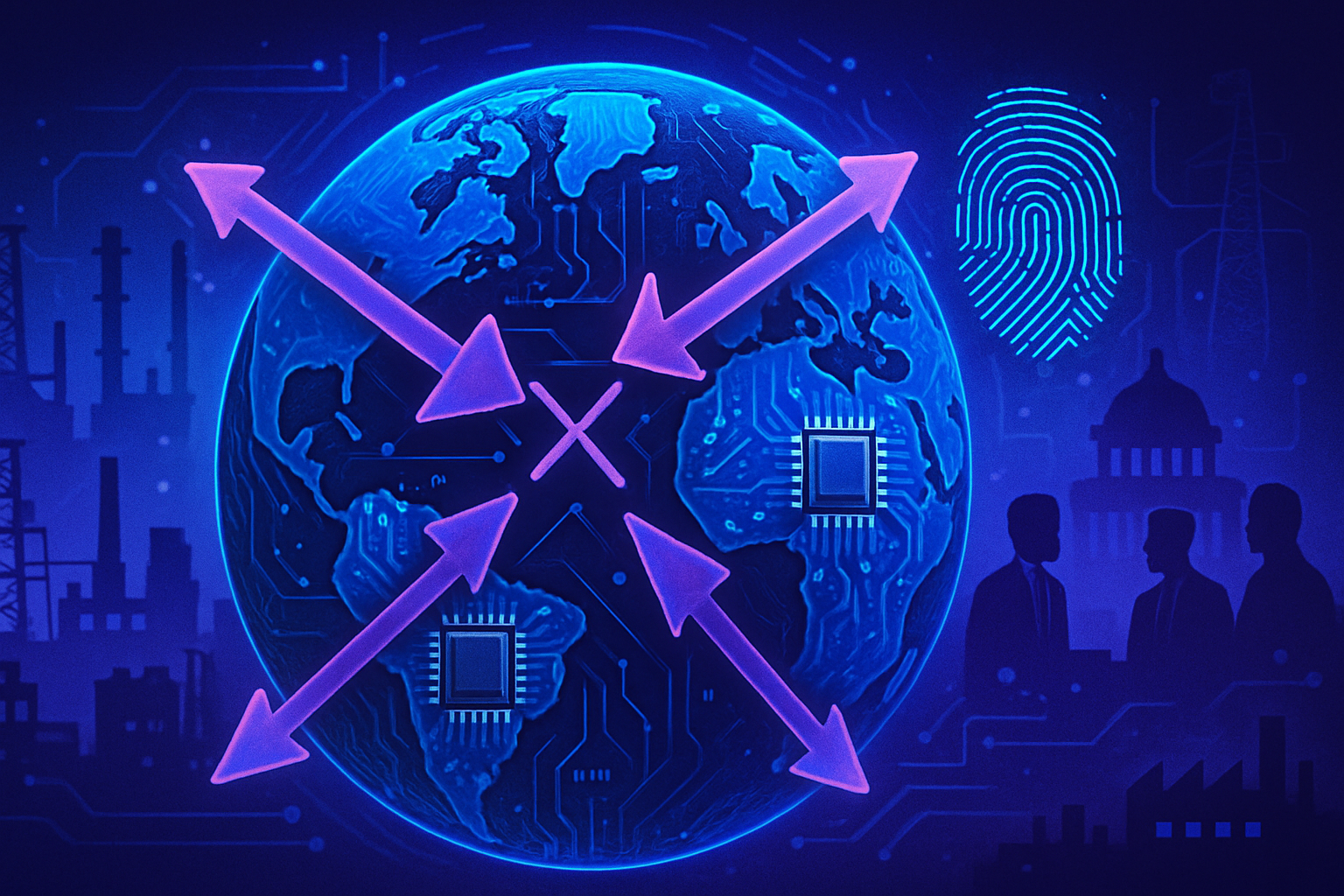The global technological landscape is undergoing an unprecedented transformation, culminating in acute geopolitical tensions. A U.S. embargo on AI chips could redefine strategic alignments. The stakes go far beyond simple economic considerations. International players must navigate carefully in this technological race, *at the risk of altering the balance of power on the world stage*. Technological dominance will be contested, transforming established power dynamics. Every decision will influence not only markets but also the essential international collaborations necessary for innovation.
Emergence of control panels and sovereignty concerns
The recent U.S. embargo on artificial intelligence chips strikes at the heart of global sector competitiveness. U.S. authorities, by extending their controls to chips developed by companies like Huawei, raise countless questions about national sovereignty. The situation reminds us that the technology industry is interwoven with geopolitical issues of unprecedented scale.
Repercussions on technological innovation
The restrictions imposed by the United States, through enhanced export measures, create a climate of uncertainty for global companies. Innovation could come to a halt if startups no longer have access to Chinese technologies, now unavailable due to these measures. The fear of American monopolization could stifle research and the exchange of ideas.
Impact on supply chains
The new U.S. regulations disrupt not only bilateral relations but also international supply chains. Semiconductor companies, such as Nvidia and Qualcomm, are directly affected by the need to align with U.S. policies. The globalization of these measures introduces an increasing risk of escalating costs and slowing deliveries.
Technological paranoia and alliance formations
The U.S. reaction to what it perceives as a technological threat is accompanied by growing paranoia. Each country seeks to establish strategic alliances to circumvent these restrictions. Opportunistic Japanese and Korean companies may become unexpected allies for Chinese enterprises, opening new avenues for collaboration.
The challenges of extraterritorial regulation
With shockwaves emanating from extraterritorial regulation, the dilemma arises: should foreign actors be banned from adopting innovative solutions simply because of their origin? Imposing an embargo on countries like Brazil or Germany for potentially beneficial technologies constitutes an infringement on free trade.
Digital society and merging competitions
The dichotomy between American hardware and Chinese hardware becomes increasingly palpable, exacerbating divisions within the industry. Large technology firms are forced to choose sides, thereby reducing the collective efficiency necessary for technological advancement. When political interests invert the real stakes of innovation, the consequences can be devastating for the entire sector.
Escape routes and adaptation strategies
To mitigate the effects of the embargo, companies must consider alternative solutions. Adaptation strategies focused on international collaboration could alleviate the negative effects of restrictions. Each actor must amplify their capacity to innovate while seeking partners capable of supporting technological needs.
Long-term geopolitical consequences
Restrictions on artificial intelligence risk triggering a dynamic of reciprocity, precipitating retaliatory measures from China. Such an escalation could profoundly impact global economic partnerships, leading to fragmentation of the technological ecosystem. A more balanced approach to regulation may prove essential to avoid unnecessary tensions and promote genuine collaboration.
Technology sector actors, essential links between nations, find themselves at a crossroads, navigating between protectionism and international cooperation. The repercussions of a global embargo on artificial intelligence chips could redefine the contours of the industry, overturning established balances.
To delve deeper into the issues linked to AI and cybersecurity, consult this article on digital sabotage. Global initiatives seek to prevent risks arising from language models and generative AIs, which can be discovered at this link.
Furthermore, the United Arab Emirates is intensifying their technological reintegration with AI, as evidenced by this major project. Finally, the advancements of companies like Cohere, which improve search efficiency through advanced models, illustrate the opportunities that arise despite political challenges. More information can be found at Cohere.
For a perspective on the current situation, this article discusses the interactions between Trump and economic leaders during discussions in Riyadh: Trump and the CEOs.
Frequently Asked Questions on the Issues of a Potential American Embargo on AI Chips
What are the main impacts of an American embargo on AI chips for global technology companies?
An American embargo could restrict global technology companies’ access to high-performance AI chips, leading to product development delays, increased production costs, and fragmentation of the global technology market.
How can American restrictions on AI chips affect technological innovation in other countries?
This could hinder innovation by limiting access to advanced technologies but also encourage countries to develop their own technological solutions or strengthen alliances in regions not subject to restrictions.
Why should companies operating outside the United States be concerned about U.S. exports of AI chips?
Because U.S. exports of AI chips are essential to technological development. Restrictions can lead to increased dependence on alternative suppliers, which may affect the quality and competitiveness of products.
What types of companies are most affected by a potential embargo on AI chips?
Startups and large companies developing AI-related technologies, such as natural language processing, computer vision, and machine learning, are particularly vulnerable due to their dependence on specific components.
How could the implementation of an embargo on AI chips influence international relations?
An embargo could exacerbate tensions between the United States and other countries, notably China, and cause disruptions in trade relations, potentially leading to retaliation or the creation of distinct technological blocs.
What circumvention methodologies could be adopted by companies to cope with an embargo on AI chips?
Companies could seek strategic partnerships with non-American suppliers, invest in research and development of local technologies, or even source from manufacturers outside the scope of the restrictions.
What could be the long-term effects of an American embargo on the global AI ecosystem?
In the long run, an embargo could lead to fragmentation of the AI ecosystem, with countries developing independent systems, potentially reducing international cooperation and posing challenges for global technological progress.
Will end consumers be affected by an embargo on AI chips?
Yes, consumers could face higher prices and reduced access to advanced technological products due to limited supply and increased production costs for manufacturers.






